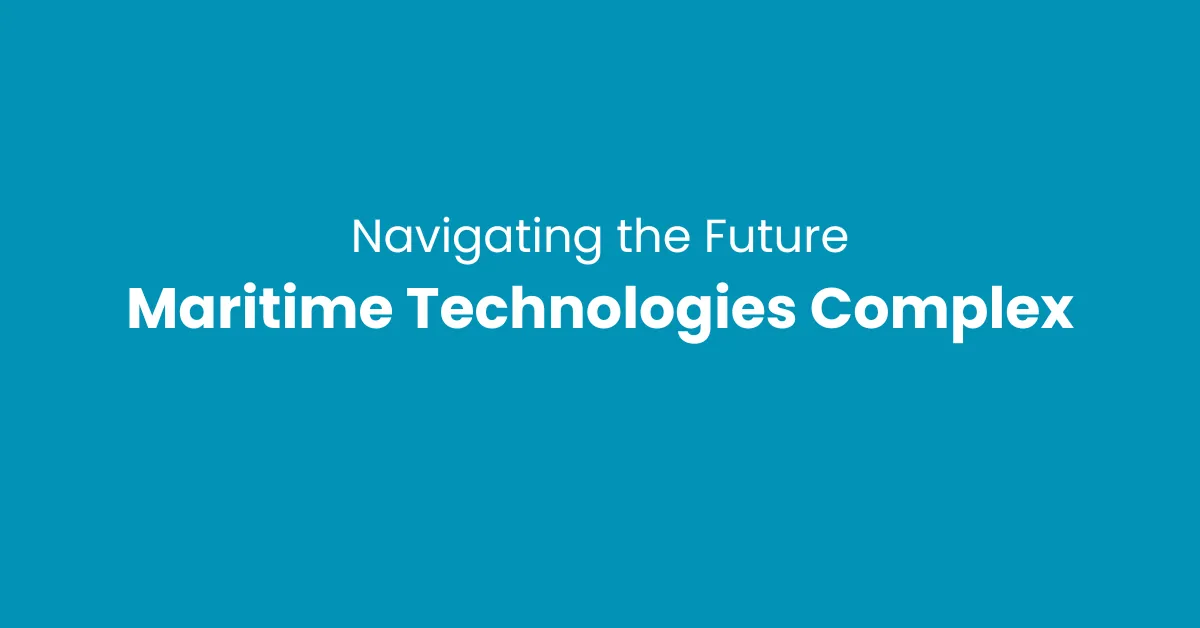Ahoy there! Ever wondered how today’s ships practically sail themselves or how ports operate with the precision of a Swiss watch? Enter the Maritime Technologies Complex—a hub of innovation steering the maritime industry into the future. Let’s embark on a journey to explore this fascinating world and its impact on global trade, naval defense, and ocean exploration.
What Is the Maritime Technologies Complex?
The Maritime Technologies Complex (MTC) is a cutting-edge facility dedicated to the research, development, and implementation of advanced maritime technologies. Located in Karachi, Pakistan, MTC focuses on enhancing maritime efficiency, boosting naval security, and supporting sustainable ocean practices.
Key Functions of MTC
- Enhancing Maritime Efficiency: Developing technologies that streamline shipping operations, reduce transit times, and optimize fuel consumption.
- Boosting Naval Security: Innovating defense systems to protect national waters and ensure safe maritime navigation.
- Supporting Sustainable Ocean Practices: Creating eco-friendly solutions to minimize the environmental impact of maritime activities.
Why Does It Matter?
In today’s interconnected world, the maritime industry is the backbone of global trade. With increasing demands and environmental challenges, the need for advanced maritime technologies has never been greater. The MTC plays a pivotal role in addressing these challenges by:
- Meeting Global Trade Demands: Ensuring efficient and reliable shipping routes to support international commerce.
- Addressing Climate Challenges: Developing green technologies to reduce carbon emissions and protect ocean health.
- Driving Technological Evolution: Leading the way in maritime innovation to keep pace with the rapidly evolving tech landscape.
Innovations Steering the Maritime World
The MTC is at the forefront of several groundbreaking technologies transforming the maritime sector:
Autonomous Shipping
Imagine ships that navigate and operate without human intervention. Autonomous vessels use advanced AI, sensors, and GPS technology to enhance safety and efficiency on the high seas.
Advanced Navigation Systems
Beyond traditional GPS, modern navigation systems incorporate real-time data and AI to chart optimal courses, avoid hazards, and improve arrival times.
Smart Ports
Ports are becoming smarter with AI-powered logistics hubs that manage cargo, streamline operations, and reduce turnaround times, making global trade more efficient.
Green Maritime Technology
The push for sustainability has led to innovations like wind and solar-powered vessels, carbon-neutral shipping solutions, and tools to protect marine biodiversity.
Real-World Applications
These technological advancements have tangible impacts across various sectors:
Revolutionizing the Shipping Industry
- Faster and Safer Cargo Transport: Automation and advanced navigation reduce human error and enhance delivery times.
- Cost Reduction: Efficient technologies lower operational expenses, benefiting businesses and consumers alike.
Enhancing Naval Defense
- Unmanned Underwater Vehicles (UUVs): These drones conduct surveillance and reconnaissance without risking human lives.
- Cybersecurity Measures: Protecting naval assets from digital threats is crucial in modern warfare.
Advancing Ocean Exploration
- Deep-Sea Drones: Exploring uncharted territories of the ocean, gathering data, and discovering new species.
- Enhanced Data Collection: Improved sensors and analytics provide valuable insights into marine ecosystems.
Challenges on the Horizon
While the future looks promising, several challenges must be addressed:
Cost and Implementation
- High Upfront Investment: Developing and deploying new technologies require significant capital.
- Adoption Hurdles: Integrating these technologies, especially in developing regions, can be challenging.
Cybersecurity Concerns
- System Vulnerabilities: Increased connectivity opens the door to potential cyber threats that must be mitigated.
Environmental Considerations
- Ecosystem Impact: Ensuring that new technologies do not harm marine life is essential for sustainable development.
The Role of the U.S. in Advancing Maritime Technologies
The United States plays a significant role in the development and implementation of maritime technologies:
Government Initiatives and Funding
- U.S. Navy Investments: Significant funding is directed toward enhancing naval capabilities through advanced technologies.
- Federal Grants: Support for research in green shipping technologies promotes sustainable practices.
Private Sector Contributions
- Industry Leaders: Companies like Huntington Ingalls Industries are at the forefront of developing unmanned systems for defense and commercial applications.
Startups and Innovators: Emerging companies contribute to the maritime tech landscape with innovative solutions.
A Glimpse into the Future
The maritime industry is on the cusp of a technological revolution:
Predictions for the Next Decade
- Fully Autonomous Fleets: The rise of self-navigating ships operating without human crews.
- Quantum-Powered Navigation: Utilizing quantum technology for unparalleled navigational accuracy.
- AI-Driven Ocean Monitoring: Real-time monitoring of ocean health using artificial intelligence.
How You Can Get Involved
- Career Opportunities: Explore careers in maritime technology, from engineering to environmental science.
- Support Sustainable Practices: Make informed choices that favor eco-friendly shipping and products.
Conclusion
The Maritime Technologies Complex is more than a hub of innovation; it’s a beacon guiding the maritime industry toward a future where technology and sustainability sail in harmony. As we navigate these uncharted waters, embracing these advancements will ensure that our oceans remain a source of prosperity and wonder for generations to come.
FAQs
1. What is the Maritime Technologies Complex?
The Maritime Technologies Complex (MTC) is a facility in Karachi, Pakistan, dedicated to advancing maritime technologies to enhance efficiency, security, and sustainability.
2. How do autonomous ships work?
Autonomous ships utilize AI, sensors, and advanced navigation systems to operate with minimal human intervention, improving safety and operational efficiency.
3. Why is green maritime technology important?
Green maritime technology reduces environmental impact, lowers carbon emissions, and promotes sustainable use of ocean resources, crucial for combating climate change.
4. What challenges exist in implementing maritime technologies?
Challenges include high costs, cybersecurity risks, and ensuring that new technologies do not adversely affect marine ecosystems.
5. How can I contribute to maritime technology innovation?
You can pursue a career in maritime technology, support sustainable maritime practices, or advocate for policies that promote ocean health and technological advancement.






